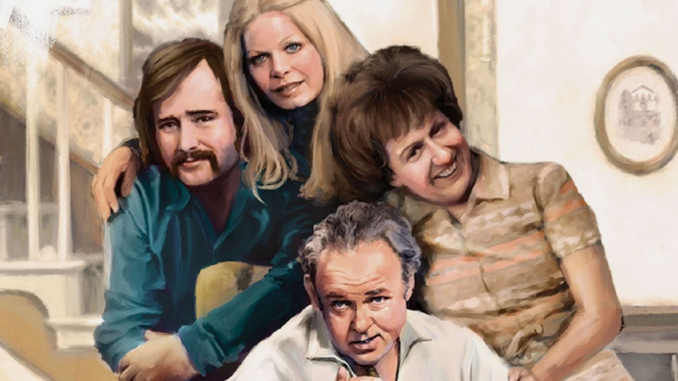
There are very few shows in TV history that have managed to change the medium itself. All in the Family is one of those rare gems that redefined what television could do. By combining social commentary with humor, the show dared to talk about issues that were deemed unfit for mainstream entertainment. If you’ve never seen it or if you’re just curious about its revolutionary impact, here’s why All in the Family changed TV forever.
A Look at the Bold Characters: All in the Family didn’t rely on the usual family-friendly tropes that most sitcoms of the era adhered to. At the heart of the show was Archie Bunker, a man whose worldview was narrow, bigoted, and often offensive. But instead of making him a mere villain, the show allowed him to be a complex character, one whose flaws and ignorance were explored with both humor and seriousness. Archie’s interactions with his wife, Edith, their daughter, Gloria, and son-in-law Mike, exposed the tensions between traditional values and the changing world around them.
Breaking Taboos: Before All in the Family, American TV had largely avoided topics like racism, sexism, and politics. But creator Norman Lear had a vision: to create a show that wouldn’t shy away from these issues. Archie Bunker’s character served as a vehicle to address some of the most contentious issues in American society. The show didn’t just passively entertain; it engaged with the culture, critiquing social norms and the ways in which they shaped people’s beliefs and behaviors.
A Catalyst for Change: By taking risks and speaking directly to the political and social issues of its time, All in the Family became a powerful cultural force. It pushed the boundaries of what was acceptable in television, forcing the industry to reconsider what audiences could handle. It was also the first show to tackle issues like feminism and racial integration head-on, and in doing so, it paved the way for other TV shows to explore similar topics.
Why It’s Still Relevant: The impact of All in the Family can still be felt today. In an era where issues of race, class, gender, and politics are as divisive as ever, the show’s willingness to engage with difficult conversations is more important than ever. Though the world has changed in many ways since the show aired, the core themes of All in the Family still resonate. Watching it today is a reminder of how much progress has been made, and how much work remains to be done in creating a truly equitable society.
